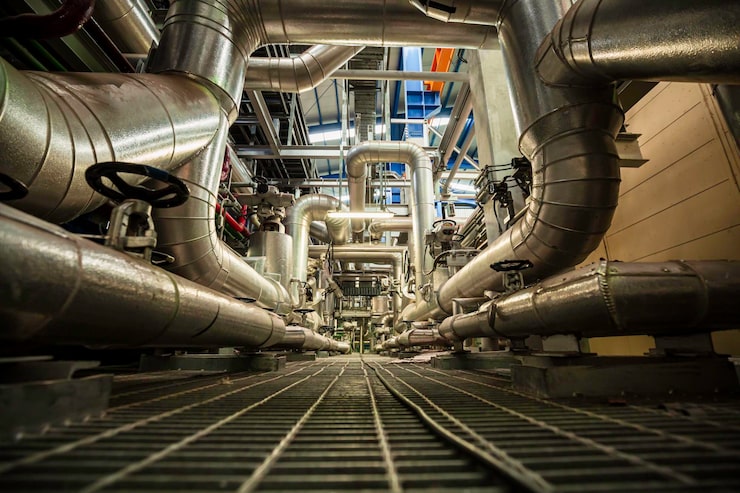Navigating Innovation Below and Above the Surface
The modern maritime frontier is evolving faster than the tide itself. As technology advances, marine services are transitioning from routine maintenance tasks to comprehensive performance transformations. Within the first hundred words of this exploration, we glimpse how innovation and precision engineering now define the maritime experience—enhancing durability, safety, and operational intelligence for vessels that call the coast their home.
The Evolution of Marine Services in a Changing Seascape
In the past, vessel upkeep meant reactive solutions—fixing corrosion, repainting decks, or patching mechanical wear. Today’s marine services operate as sophisticated ecosystems of data-driven diagnostics, advanced coatings, and predictive maintenance.
These advancements align vessels with modern sustainability goals while simultaneously optimizing hydrodynamics and energy efficiency. Every service—whether ultrasonic hull inspection or specialized antifouling application—is a step toward minimizing downtime and maximizing vessel lifespan.
Engineering Excellence: The Science Behind Enhanced Performance
Hydrodynamics Meets Smart Technology
Advanced marine services leverage computational analysis to refine hull geometry, reducing drag and improving propulsion efficiency. The integration of AI-based modeling helps service specialists predict stress patterns, corrosion tendencies, and performance fluctuations in real-time.
This convergence of science and craftsmanship enables vessels to glide through variable sea conditions with reduced fuel consumption and improved control. It’s a technological partnership between mechanics and mathematics, redefining what seafaring performance means in the 21st century.
Marine Insulation: The Unsung Guardian of Vessel Stability
The Thermal and Acoustic Equation
Behind every efficient craft lies the hidden mastery of marine insulation. More than a comfort enhancer, it functions as a protective membrane against heat exchange, vibration resonance, and acoustic intrusion. Proper insulation ensures onboard systems maintain consistent temperature regulation, reducing energy demand and safeguarding mechanical reliability.
The Materials Revolution
Modern marine insulation incorporates composite foams, ceramic fibers, and vapor-resistant laminates designed to withstand saline environments and extreme temperature fluctuations. These materials not only reduce condensation risk but also contribute to the vessel’s structural integrity—maintaining dry compartments and stable internal climates even under relentless maritime pressure.
Sustainability Anchored in Precision
Eco-Driven Marine Services for a Cleaner Future
The new wave of marine services focuses on sustainability through efficiency. Biodegradable coatings, non-toxic antifouling layers, and recyclable insulation components reduce ecological footprints. Coastal operators increasingly favor low-emission engines and hydrophobic surface treatments that preserve both vessel performance and marine biodiversity.
Circular Maintenance Practices
Circular maintenance models—where used materials are refurbished or repurposed—further extend the life of maritime assets. These approaches redefine service economics: less waste, fewer replacements, and greater operational continuity.
When combined with marine insulation, energy efficiency rises significantly, reducing onboard HVAC demands and trimming operational costs.
Digital Integration: Smart Data for Smarter Seas
Predictive Maintenance and Remote Diagnostics
Modern marine services integrate IoT sensors that monitor hull stress, insulation performance, and fluid dynamics. These smart sensors communicate with onshore control systems, enabling instant alerts for irregularities before they escalate into costly breakdowns.
Data-driven analytics also assist in customizing service intervals, ensuring each vessel receives precise attention based on actual performance metrics rather than fixed schedules. This digital evolution transforms vessel management from reactive care into intelligent foresight.
Customization and Client-Centric Engineering
Designing Services Around Vessel Identity
Every coastal vessel has a unique operational signature. Advanced marine services now offer bespoke maintenance packages tailored to vessel size, usage patterns, and environmental exposure.
For instance, high-speed patrol boats may prioritize hydrodynamic efficiency and vibration reduction, whereas research vessels require enhanced marine insulation to maintain stable internal environments for sensitive equipment.
Such customization fosters higher efficiency, improved safety, and superior crew comfort—essential elements for long-term maritime productivity.
The Aesthetic and Functional Symbiosis
Beyond Performance: The Art of Finishing
The refinement of vessel exteriors through advanced coatings, composite layering, and precision polishing enhances not only aesthetics but also fluid resistance. These innovations blur the line between beauty and functionality, crafting vessels that are as visually commanding as they are mechanically superior.
Future Horizons of Marine Engineering
Emerging innovations point toward bio-inspired hull designs, AI-coordinated repair drones, and adaptive insulation materials capable of self-regulating temperature based on external conditions. As these technologies mature, marine services will evolve from maintenance providers into performance architects.
Vessels of the near future will think, sense, and respond dynamically—where every surface and subsystem communicates for optimal equilibrium between energy, structure, and environment.
Integrated Innovation: The Convergence of Materials and Intelligence
The boundary between mechanical precision and digital intelligence is rapidly dissolving within the realm of marine services. Modern vessels now integrate adaptive surface materials with embedded micro-sensors that monitor humidity, pressure, and temperature fluctuations in real time. When paired with advanced marine insulation, these intelligent materials create a self-regulating environment—automatically adjusting to external maritime conditions. This fusion of material science and smart engineering ensures vessels operate with optimal balance, extending longevity while preserving energy and minimizing resource consumption across every nautical journey.
Conclusion: Navigating the New Era of Maritime Mastery
In the sweeping transformation of coastal engineering, marine services and marine insulation have become the twin anchors of innovation. They harmonize durability with sustainability, enabling vessels to endure the harshest conditions while minimizing environmental impact.
As coastal fleets embrace these intelligent technologies, the seas ahead promise not only safer voyages but also a new dimension of maritime excellence—where precision meets resilience and performance meets purpose.

